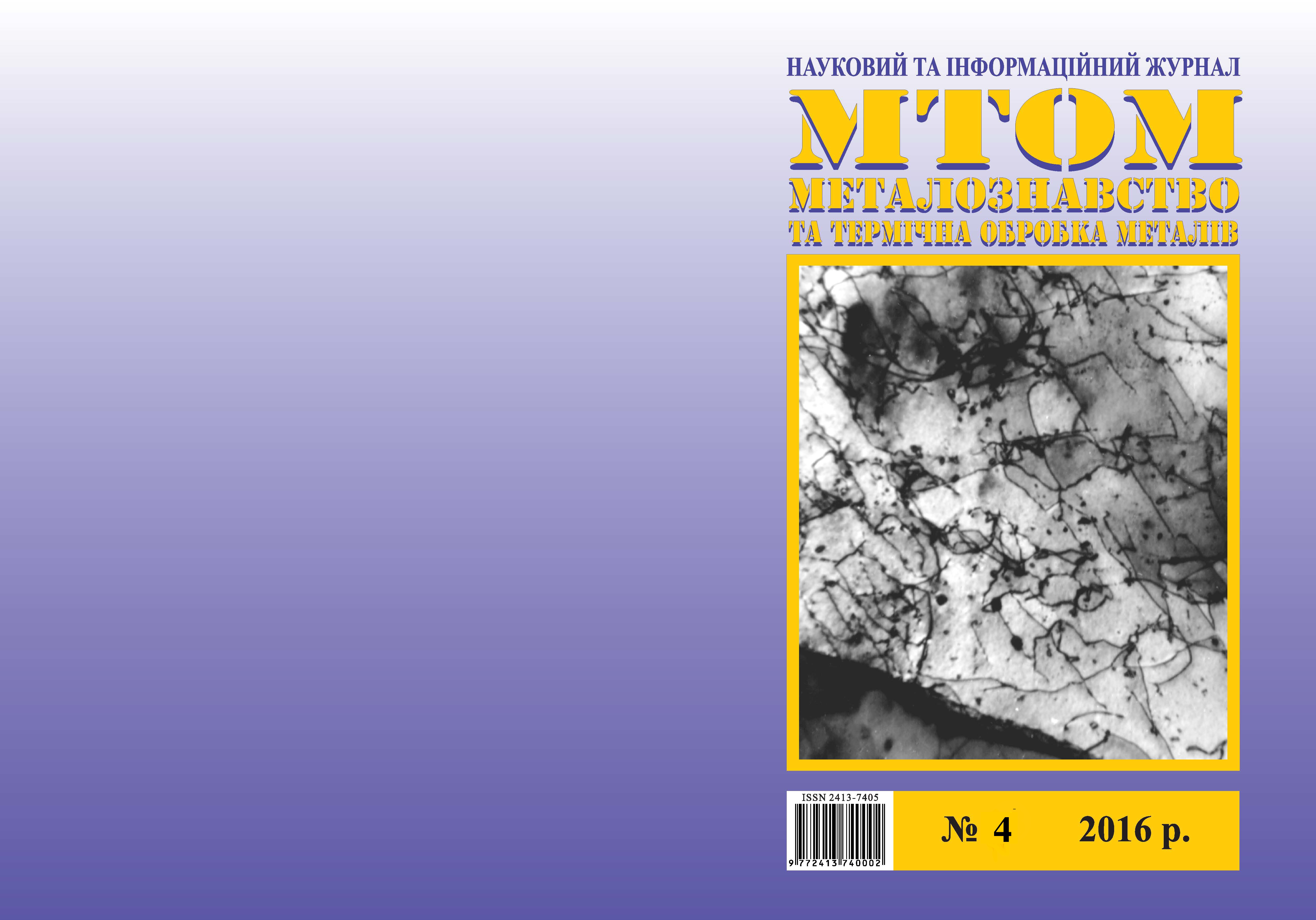Influence of technological parameters of electrolysis and the composition of the electrolyte on the physical properties of the dispersed iron
Keywords:
iron powder, circulation rate, electrodeposition, current density, particle morphology, particle sizeAbstract
Problem definition. Synthesis of a technological electrolytic iron powder with controlled particle size and shape, the desired structural, physical and functional properties. Methodology. For the dispersed iron electrolytic deposition process were using a soluble steel anode and titanium cathode. Electrolyte − sulfate; form cathode − plate; electrolysis time − 1 hour. Experimental studies were carried out in accordance with the plan of full factorial experiment (FFE) 23, as well as with the use of regression analysis. The average particle size and morphology was determined using optical microscopy method. Findings. According to the results of experiments obtained polynomial models that adequately describe the relationship established parameters. The most important factors are the circulation speed, current density and iron sulphate concentration. The presence of a synergistic effect of joint influence cathode current density and electrolyte acidity on the iron cathode precipitation properties has been determined. When simultaneous increase of these parameters there is a significant coarsening of iron powder particles. With increasing rate electrolyte circulation average particle size increases. Reduced concentration of iron sulfate in the interval of variation leads to the formation of very thin and light cathode precipitation with a bulk density of less than. Originality. First defined patterns combined influence of electrolysis process technological factors (current density, temperature and circulation speed of the electrolyte), as well as electrolyte composition, on particle morphology and properties of the iron powder has been determined in the first. Practical value. The practical significance of the results is that the optimal levels of the main disperse iron electrodeposition technological parameters to provide the specified characteristics of controlled electrolytic iron powder and the expansion of application areas.
References
Акименко В. Б. Железные порошки / В. Б. Акименко, В. Я. Буланов, В. В. Рукин, Е. С. Смичкова, Л. Н. Заворохин. – Москва : Наука, 1982. – 264 с.
Кунтій О. І. Електрохімія та морфологія дисперсних металів / О. І. Кунтій. − Львів : Вид-во нац. ун-ту «Львівська політехніка», 2008. – 208 с.
Кудра О. Электролитическое получение металлических порошков / О. Кудра, Е. Гитман. – Киев : Изд-во АН УССР, 1952. – 144 с.
Внуков А. А. Оптимизация состава электролита для получения медного порошка / А. А. Внуков, Е. Э. Чигиринец, И. Г. Рослик, В. В. Кабацкая // Вісник НТУ «ХПІ». – 2011. – № 31. – С. 30–38.
Внуков А. А. Совместное влияние функциональных добавок на структурообразование и свойства частиц порошковой меди при электролизе / А. А. Внуков, И. Г. Драган // Металлургическая и горнорудная промышленность. – 2011. – № 6. –
С. 55–57. – Режим доступа: http://www.metinfo.dp.ua
Внуков А. А. Исследование совместного влияния параметров электролиза на структурообразование и свойства дисперсной меди / А. А. Внуков, А. Н. Головачев, Ю. И. Таратута // Новини науки Придніпров'я. –2012. – №1–2. – С. 61–65.
Внуков А. А. Исследование совместного влияния параметров электрокристаллизации на морфологию и дисперсность частиц порошка никеля / А. А. Внуков, А. Н. Головачев, В. А. Асмолков // Металознавство та термічна обробка металів. – 2012. – № 3–4 (58–59). – С. 7–-81. – Режим доступа: http://www.journals.uran.ua/index.php/2413-7405
Внуков А. А. Влияние скорости циркуляции электролита на свойства дисперсной электролитической меди / А. А. Внуков, А. Н. Головачев, А. В. Белая // Металознавство та термічна обробка металів. – 2015. – № 3–4. – С. 63–65. –Режим доступа: http://www.journals.uran.ua/index.php/2413-7405
Downloads
Published
Issue
Section
License
Authors that are published in this journal agree to follow the conditions:
Authors reserve the right to the authorship of his work and cede the right to the journal of first publication of this work on conditions of the license under the Creative Commons Attribution License, which allows others to distribute it freely with the obligatory reference to the author of the original work and the first publication of the work in this journal.

